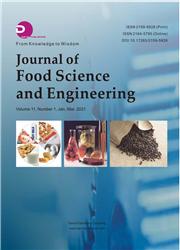Communicating in Product Harm Crises: Do the Right Thing
引用次数: 0
Abstract
: Food recalls can have very serious aftermath from many points of view: starting from the outbreak consequences on public health, on company’s reputation, sell-out, finance, up to putting at risk the survival of the firm itself. From a formal point of view, a product harm crisis presents similarities with other emergency situations: both of them consist in unpredictable events, often due to unknown or undervalued causes, which can significantly alter normal business and compromise the safety of the company, of its employees and customers. Given the potential damage resulting from a dangerous product crisis, it is surprising that in the food industry alongside mere procedures (often reducible to botched manuals compiled solely because their presence reassures auditors and authorities) there is still little attention to an approach based on a method. Formal corporate procedures (manuals and crisis management plans) are important, but can cause a false sense of security and preparedness, if executives do not possess an adequate crisis management culture, which depends, as well as on experience and training, also on the ability to assume the correct behavioral posture, and which involves psychological, organizational and communicational skills that can not be undervalued. The purpose of this article is to provide a practical approach based on the experience of crisis-management (applied in emergency situations by health professionals, armed forces and civil protection) useful to support food industry during a food recall, in order to avoid the most classic errors that can undermine speed of reaction, corrective measures effectiveness and leadership, in the most delicate moments for a company life. If it is true the way a firm manages the recall affects its impact, it is necessary to assess the fundamental factors to be observed at such times: timeliness, lucidity, responsibility, leadership.产品危害危机中的沟通:做正确的事
:从多个角度来看,食品召回可能会产生非常严重的后果:从疫情对公众健康、公司声誉、销售、财务的影响,到危及公司自身的生存。从正式的角度来看,产品危害危机与其他紧急情况有相似之处:两者都包括不可预测的事件,通常是由于未知或低估的原因造成的,这可能会严重改变正常业务,危及公司、员工和客户的安全。考虑到危险产品危机造成的潜在损害,令人惊讶的是,在食品行业,除了简单的程序(通常可以简化为拙劣的手册,因为它们的存在让审计员和当局放心)之外,人们仍然很少关注基于方法的方法。正式的公司程序(手册和危机管理计划)很重要,但如果高管们不具备足够的危机管理文化,可能会造成虚假的安全感和准备感,这种文化不仅取决于经验和培训,还取决于采取正确行为姿态的能力,组织和沟通能力不容低估。本文的目的是提供一种基于危机管理经验的实用方法(由卫生专业人员、武装部队和公民保护部门在紧急情况下应用),有助于在食品召回期间支持食品行业,以避免最经典的错误,这些错误可能会破坏反应速度、纠正措施的有效性和领导力,在公司生活中最微妙的时刻。如果一家公司管理召回的方式确实影响了召回的影响,那么有必要评估在这种时候需要观察的基本因素:及时性、清晰性、责任感和领导力。
本文章由计算机程序翻译,如有差异,请以英文原文为准。
求助全文
约1分钟内获得全文
求助全文

 求助内容:
求助内容: 应助结果提醒方式:
应助结果提醒方式:


